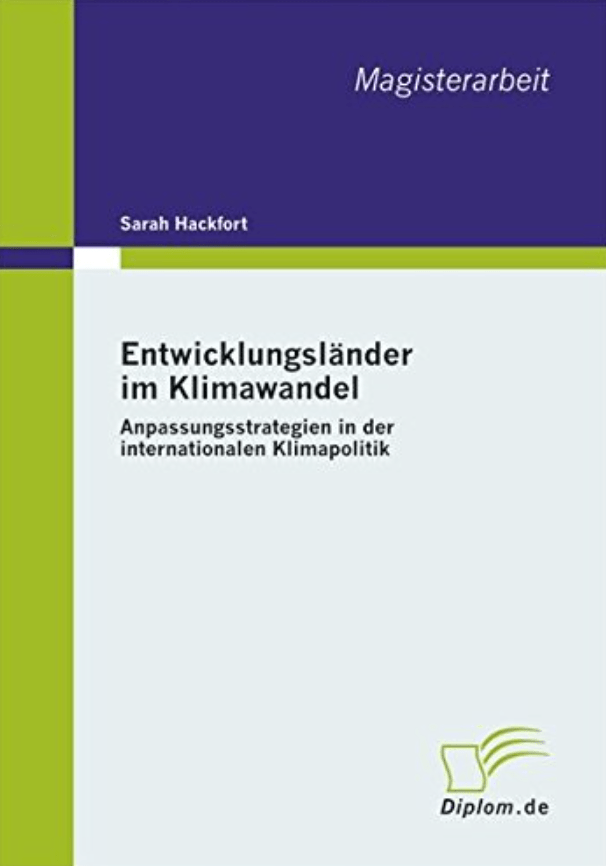Developing Countries in Climate Change - Adaptation Strategies in International Climate Policy
Abstract
Current political response strategies to climate change take into account both mitigation measures and adaptation to the climate change already caused and its consequences.
The subject of this study is the national climate change adaptation strategies of Bangladesh and Malawi. From a socio-ecological perspective, the countries' political strategies for adapting to climate change are placed in the context of international climate policy and critically assessed. This is based on a multidimensional understanding of vulnerability to climate change and criticises the fact that the dominant policy approaches in climate policy reduce the problem to its purely ecological dimension. Accordingly, the adaptation policy strategies are one-sided and are limited almost exclusively to technological and infrastructural approaches.
In contrast, the study argues in favour of understanding climate change as a socio-ecological crisis that also calls for social solutions and, for example, attaches greater importance to the recognition and participation of affected individuals in climate policy processes. When the ecological impacts of climate change meet social realities such as social inequality (internationally and within society), poverty and vulnerability, political marginalisation and social exclusion, the social dimension of adaptation accordingly deserves more importance. In the formulation of adaptation strategies, social science questions about inequality, power distribution mechanisms, access opportunities, options for action and rights of disposal, social exclusion and marginalisation and the course of political processes and forms of political organisation play an important role.
Authors
Hackfort, Sarah K.
Source information
Title
Developing Countries in Climate Change - Adaptation Strategies in International Climate Policy
Year of publication
2012
Publisher
Diploma - Hamburg
Document type
Book Monograph